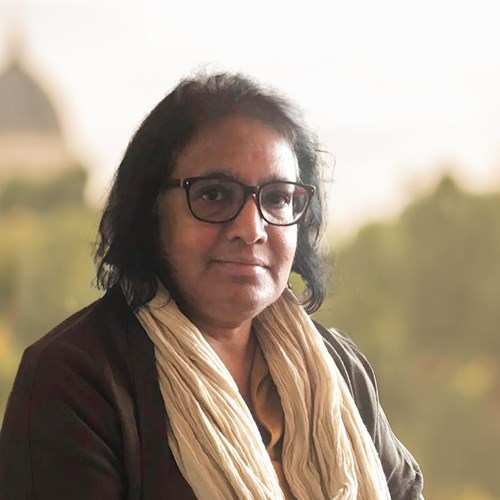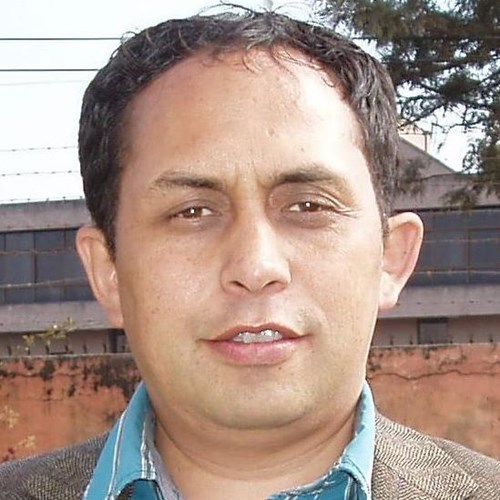Background
A transition to a carbon-neutral economy is essential to prevent climate change reaching a point where mitigation is impossible. Because of the centrality of fossil fuel use in creating carbon emissions, the energy sector is of key importance. In 2019, atmospheric CO2 concentrations were higher than at any time in at least 2 million years, with the largest share and growth in gross GHG emissions occurring in CO2 from fossil fuels combustion and industrial processes (IPCC 2023) . The Asia Pacific region is expected to play a crucial role in tackling climate change as it is responsible for about half of the current global carbon emissions. Reducing emissions means transitioning to clean energy. The ADB “Energy Policy: Supporting Low-Carbon Transition in Asia and the Pacific” is an important contribution to providing a policy framework for the clean energy transition in the South Asia region. The ADB 2030 Strategy Operational Priority 2 (Accelerating Progress in Gender Equality) has a target to include at least 75% of the number of ADB’s committed sovereign and non-sovereign operations incorporating gender elements. To achieve these targets integrating gender elements in the ADB clean energy transition programs is essential. Key features of the clean energy transition will include catalyzing green growth, deepening social inclusiveness and promoting public private partnership synergies. A clean energy transition has implications for non-energy sectors, such as waste management, transport, and agriculture (all responsible for significant greenhouse gas emissions). Deepening social inclusion. Planning for a Just Transition will be critical in managing this process, to mitigate negative socioeconomic impacts and increase opportunities associated with the transition. Key considerations to guide a ‘just transition’ include: (a) universal access to quality energy services; (b) ‘no worker and community left behind’, so that workers in industries that need to be transitioned away from should have social protection, alternative, satisfactory employment options, including retraining, and alternative livelihoods and social protection for affected and vulnerable communities; (c) addressing gender employment gap, including women in STEM industries; (d) groups in the frontlines being part of the decision making and leadership of their transition, through utilisation of traditional, indigenous and local knowledge. These new challenges require a new approach that integrates the physical environment and infrastructure, social environment, economic environment, planning and resourcing for resilience and governance, focusing on gender equality and social inclusion (GESI). GESI and decarbonization are essential, inter-connected and inter-related aspects of a Just Transition towards sustainable systems and societies.Objectives
Identification of opportunities and challenges for GESI in the clean energy transition and pathways towards a just energy transition, based on international experiences and promising practices applicable to South Asia.
AGENDA
9:00 - 09:10 a.m.
Welcome Remarks
Priyantha Wijayatunga, Chief of Energy Sector Group, ADB
9:10 - 09:30 a.m.
Lessons: Overview of International Experiences, Technology Trends, Platforms and Frameworks
Moderator: Pradeep Tharakan, Director, Clean Energy Transition, ADB
Session 1 will provide an overview of key international trends in the clean energy transition and lessons for developing countries from a GESI perspective. The panellists contributions will include a historical viewpoint, present some of the existing international platforms and frameworks for a just transition and discuss the importance of community engagement, drawing from international practice.
Overview: Lessons from International Experiences
Chandra Bhushan, CEO, International Forum for Environment, Sustainability & Technology (iFOREST), India
Panel Presentations:
ADB and International Platforms and Frameworks
Kate Hughes, Senior Climate Specialist, ADB
Community Engagement and GESI Perspectives for a Just Transition: Some Lessons from the World Bank’s Practice
Balada Amor, Senior Climate Specialist, ADB
Q&A
9:30 - 10:00 a.m.
GESI in South Asia’s Clean Energy Transition: Drawing the Lessons and Moving Forward
Moderator: Reihana Mohideen, Just Energy Transition Principal Advisor Nossal Institute and Lead Climate CATCH Lab, The University of Melbourne
Session 2 will focus on country case studies, ranging from the technology and GESI innovation in the Maldives, to lessons from Sri Lanka’s achievements in electrification, the transition from coal in India and lessons for community consultation strategies and the initiatives underway towards developing a GESI inclusive workforce in Nepal’s just energy transition.
Panel Presentations:
Maldives: How Distributed Energy Resources Enable a GESI-Just Energy Transition
Jaimes Kolantharaj, Senior Energy Specialist, Energy Division, SARD, ADB
Sri Lanka: On the road to achieving full electrification and lessons for a just energy transition
Kamani Jayasekara, Deputy General Manager, Ceylon Electricity Board; Upali Daranagama, Former Additional Secretary, Ministry of Power and Energy, Sri Lanka and ADB Consultant
India: The transition from coal and lessons on social protection and community consultation strategies
Srestha Banerjee, Director Just Transition India, International Forum for Environment, Sustainability & Technology (iFOREST), India
Nepal: How to prepare a GESI inclusive workforce for a just energy transition
Kulman Ghising, Managing Director, Nepal Electricity Authority
Q&A
10:00 - 10:25 a.m.
Open Forum
10:00 - 10:25 a.m.
Concluding Summary
Moderator: Reihana Mohideen, Just Energy Transition Principal Advisor Nossal Institute and Lead Climate CATCH Lab, The University of Melbourne






